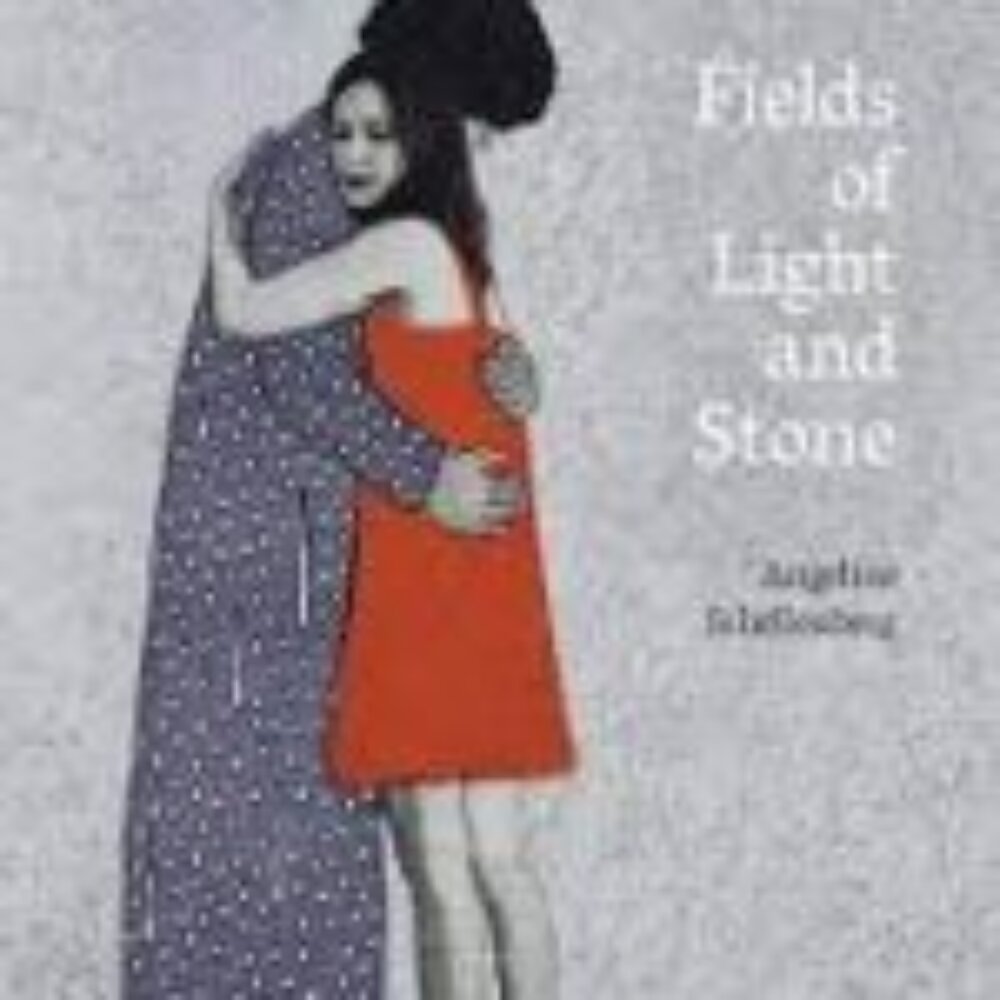By Yvonne Blomer
Fields of Light and Stone
by Angeline Schellenberg
University of Alberta Press (2020)
Fields of Light and Stone is a book of poems through which Angeline Schellenberg pays homage to her elders, their complicated histories, and her connections to them. The book is dedicated to “all who seek comfort in story/ with love for these imperfect saints” and from the start, Schellenberg connects herself to these “imperfect saints” through the land she grew up on and her grandparents’ stories.
Half the book is dedicated to her maternal grandparents and the other half to her paternal and throughout memories, biblical quotes, and religious ceremonies as well as letters and historical documents create and inform the poems that are personal and detailed, but also rich with deep contemplation.
“Everything there is to say” is her opening poem, which begins with “Everything there is to say/ has already been said about trees.” and what a grand statement, but then to go on and say more, and link “The Siberian elms (like my ancestors)” to those who “would not stay in one place.” From this beginning the poems move through time and memories, as if the narrator is sitting by the bedside of each of her grandparents and while listening to their stories, interweaves her own memories and lived tales. The book ends on “The First Trees” as if trees are structures creating a framework for these poems to live within the bounds of, “Lighter than oak or regret, aspen crates are perfect/ for carrying the books our ancestors/ have yet to write.”
Schellenberg’s careful layering of moments is captured in “The Night of the Fair” where, after being caught in a rainstorm, “we ran to her condo,/ mini-donuts dripping/ and sat four-generations deep” there they talked of Tsarist Russia “and my husband’s bald chest peeking/ out of grandma’s mint-green robe.” Throughout the first-half the grandparents letters are used as touchstones, and journals as historical documents.
Sometimes shifts in pronouns “you” and “I” made me pause, read more slowly to discover who was being referenced and what the clues were. Not all stories comes easy, as in “Between Seed and Harvest”: “After great-grandma dies and you marry her sister/…she will try to starve your daughter and leave/ your family broken./ There are no fairy-tale endings.” The you here, her grandfather.
This folding of the narrator’s life and her family’s weaves throughout in poems like “Deep Breathing” where the narrator gives birth, and that breathing is equated or recalls the grandmother’s last breaths.
A narrator with sometimes childlike-wonder and adoration of these elders moves through the relics of their lives. In the second half, her Oma and Opa are so much a part of the young Schellenberg’s life and stories shape those “Fields of Light” : “She perches on the edge/ of a piano bench/ in a Field of Light.// It’s 1919 in a Ukraine/ before famine and Oma/ is singing.”
Later when the Oma dies, the poet wonders, knowing her Oma will not meet her future children as she faces death: “is that sheen/ the morphine, or the rheum of angels?”
A deep and contemplative book that shuns linear telling favouring voice, and brief recollections from here and here and there and lets them resonate, like keepsakes – letters and recipes, her Opa’s German bible – through shifts in time and perspective.
Yvonne Blomer’s The Last Show on Earth, her fifth book, came out with Caitlin Press in 2022. Yvonne’s poetry books include As if a Raven (Palimpsest Press, 2015), and the anthologies Refugium: Poems for the Pacific and Sweet Water: Poems for the Watersheds (Caitlin Press, 2017 and 2021). Sugar Ride: Cycling from Hanoi to Kuala Lumpur (Palimpsest Press, 2017) is her travel memoir exploring body, time, and travel. Yvonne is the past Poet Laureate of Victoria, B.C., and the past Artistic Director of the weekly reading series Planet Earth Poetry. She lives on the traditional territories of the Lək̓ʷəŋən (Lekwungen) people. Yvonne mentors and teaches in poetry and prose and has students zooming in from across North America.


